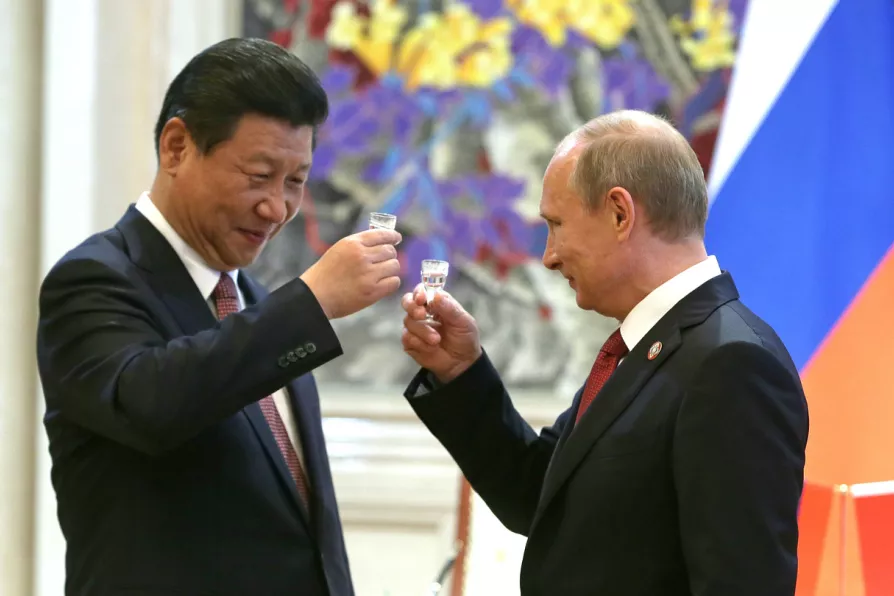Climate activist and writer JANE ROGERS introduces her new collection, Fire-ready, and examines the connection between life and fiction
Direction of travel for anti-imperialist advance
CARLOS MARTINEZ recommends Samir Amin's invigorating reflections on how revolutionary change can be realised in the Global South

 The Chinese and Russian presidents toast an energy deal
[Zuma Press]
The Chinese and Russian presidents toast an energy deal
[Zuma Press]
The Long Revolution of the Global South: Toward a New Anti-Imperialist International
by Samir Amin
(Monthly Review Press, £23.54)
THE FIRST volume of Samir Amin’s memoirs, published over a decade ago, dealt primarily with his early life and the experiences that contributed to his intellectual formation and the major ideas with which he is associated — the critique of Eurocentrism, the notion of the “long transition” to socialism and his insistence on “delinking” from the imperialist triad of the US, Europe and Japan.
This second and final instalment, published a few months after his death, combines a reiteration of Amin’s key political ideas with a whirlwind tour of the dozens of countries he visited, from Algeria to Zambia, and they include many places, such as Mauritania and East Timor, that one doesn’t hear about often enough.
Similar stories

NICK WRIGHT delicately unpicks the eloquent writings on art of an intellectual pessimist who wears his Marxism lightly

JOHN GREEN surveys the remarkable career of screenwriter Malcolm Hulke and the essential part played by his membership of the Communist Party

ANDY HEDGECOCK relishes two exhibitions that blur the boundaries between art and community engagement

CAROLINE FOWLER explains how the slave trade helped establish the ‘golden age’ of Dutch painting and where to find its hidden traces










